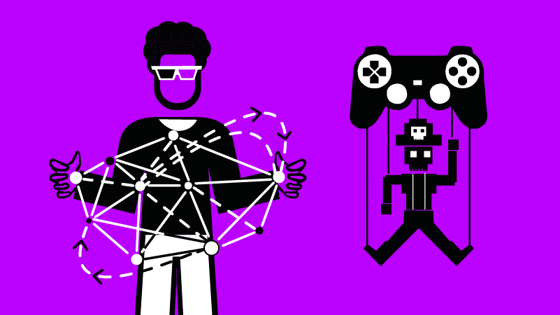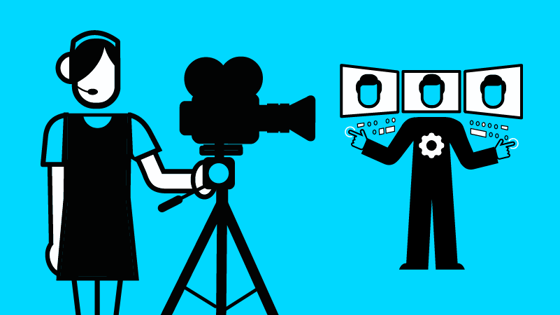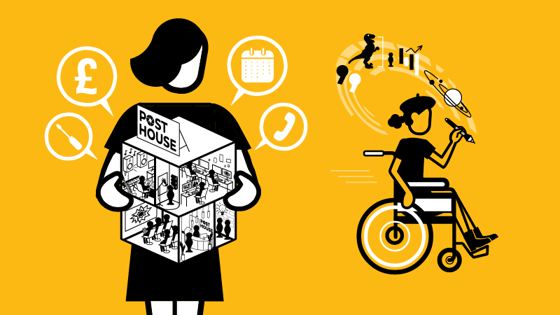Broadcast engineering
R&D engineer

What does an R&D engineer do?
Research and development (R&D) engineers develop the latest technology in the world of broadcasting, often using cutting-edge techniques and equipment.
R&D engineers might build camera and recording systems that can survive in the harshest environments; they might come up with a new underwater camera for use in sub-zero temperatures on the natural history series Frozen Planet, or they may find ways to combine medical technology with broadcast equipment to create stunning graphics on science programmes. They might also develop new online services for streaming TV.
R&D engineers turn ideas for technology into reality by experimenting with new kit and testing it in labs, before trialling it in a production and getting feedback from the people working with it. R&D engineers lead the way with finding new technology, so their work is often studied in universities and turned into academic papers.
Senior R&D engineers may specialise in a particular type of technology and are often invited to share what they are working on at conferences. They might also work with R&D engineers from other teams to produce international broadcast technical standards (rules for the way equipment is made and used) so that it works properly and safely.
Watch and read
- R&D department at the BBC
- BBC R&D testing new 5G networks technology for live Commonwealth Games coverage
What is an R&D engineer good at?
- Thinking up new ideas: coming up with new ideas for tech, keeping up to speed with the latest new technology and what is exciting people in the industry
- Problem solving: looking carefully at problems with pieces of equipment or whole systems of equipment and coming up with creative solutions
- Writing documents: putting together product specifications that describe the requirements of a product, project plans, or other documents to help with research and development
- Working with other people: coming up with broadcast technical standards with other R&D engineers; working with the production and sales teams of a business to find out how new tech could help them.
Who does an R&D engineer work with?
They often work for broadcasters like BBC or Channel 4, looking at the best ways to broadcast finished programmes or improve online broadcasting services like All 4 so that they are accessible, fun and easy to use.
R&D engineers might also work for commercial companies like Grass Valley or TSL, which make broadcasting equipment such as advanced cameras and sound equipment in the UK. In a commercial company, they need to understand how their designs might make money for a business and how they could be marketed.
How do I become an R&D engineer?
You’ll need to have a great knowledge of broadcasting technology and be excited about it. This is a job that requires both academic skills for research and writing papers and excellent technical know-how. Getting a degree in a relevant subject is the simplest route and one that employers like. It is sometimes possible to become an R&D engineer through acquiring lots of knowledge and experience from working in the broadcast engineering industry.
If you want to become a senior R&D engineer, you’ll need to get experience working for a major broadcaster or commercial company. Most importantly, you will need to find a job that involves managing a team of other engineers and regularly explaining technology to senior programme makers with no engineering background.
At school or college
If you’re interested in a career in broadcast engineering, A-levels in maths, computer science and physics would be good to get under your belt. You could combine these with subjects from the arts and humanities, such as English, history or music, which may come in useful for the content of the programmes you work with. Languages are also handy if you need to travel or want to work with foreign broadcasters – studying A-level Spanish might be your ticket to working at the 2026 World Cup in Mexico!
The following Level 3 vocational qualifications are also relevant to this role:
- BTEC in Engineering with Engineering Maths
- Cambridge Technical Extended Certificate in Engineering
- BTEC National Foundation Diploma in Engineering
- C&G Technical Certificate in Engineering
- EAL Technical Diploma/Extended Diploma in Engineering Technologies
- BTEC Diploma/Extended Diploma in Electrical and Electronic Engineering
- City & Guilds Advanced Technical Diploma in Electrical Installation
- EAL Diploma/Advanced Diploma in Electrical Installation
Selected schools and colleges have also started offering T-levels – a qualification equivalent to three A-levels that is designed to help you get into the industry of your choice. Study is 80% classroom- and 20% work placement-based.
The following T-levels would help to kick-start your career in broadcast engineering:
- Media, Broadcast and Production
- Digital Production, Design and Development
- Digital Support Services
- Digital Business Services
- Design and Development for Engineering and Manufacturing
- Maintenance, Installation and Repair for Engineering and Manufacturing
- Engineering, Manufacturing, Processing and Control
Apprenticeships
Apprenticeships are jobs with training. Search for apprenticeships in broadcast engineering with broadcasters like BBC and Sky. Go to What’s an apprenticeship? to find out more and Where can I find an apprenticeship? to find apprenticeships in your region. Alternatively, you can approach companies directly. Take a look at our list of apprenticeships to find the schemes of the main broadcasters. The BBC has a three-year broadcast and media systems degree apprenticeship that offers a mix of practical experience and university study in all areas of media systems engineering. You may also be interested in the level 3 apprenticeship for broadcast and media systems technical operator.
Volunteer
Get involved with events in your local community, whether that’s running the sound for your school talent show, managing the special effects for an amateur dramatics society or helping out at a volunteer-run radio station.
Contact theatre productions or local music venues that can get you behind the scenes of a production environment. Anything that gives you experience in dealing with equipment in a live environment will be helpful. Voluntary experience is great for your CV, because it shows you’re enthusiastic, have technical ability and experience and you work well as part of a team.
Get a degree
A degree in a maths or science subject would stand you in good stead for entering the world of broadcast engineering, and most R&D engineers will have one. You could also look at electronic engineering, software design or computing. Degrees where programming or collecting data and conducting scientific studies is important will set you up well. You might also be able to demonstrate a range of equivalent knowledge and experience gained through working in industry. Go to ScreenSkills Select to find university and college courses accredited by ScreenSkills.
Look outside the industry
If you can’t or don’t want to get into broadcast engineering straightaway, industries that require similar skills include telecoms, live events and radio. These would enable you to strengthen your technical abilities and get experience with technical equipment.
If you want to become a senior R&D engineer, try to find roles that provide experience with technical equipment as well as increasing responsibility within a team. For roles that have both technical and managerial aspects, look into smaller film and music video productions.
Get work experience
Write to local production companies and ask if they offer technical assistant roles. Keep an eye out for work experience opportunities at the BBC, ITV, Channel 4, Sky and the PACT Indie Diversity Training Scheme.
Alternatively, try approaching a rental equipment company that supplies productions with the gear they need. This will enable you to get your hands on equipment, learn more about it and get to know people who work in TV.
Take a short course
If you are over 18, make a ScreenSkills account and check out ScreenSkills’ Training and opportunities page and click on Training to see what courses are available, whether they are in person or online. The training doesn’t have to be linked directly to broadcast engineering; for example, a short course on developing resilience would help you understand how to thrive in challenging circumstances.
Network
Get to know people in the film and TV industry by attending events such as ScreenSkills’ Open Doors. Go to Training and opportunities and use the events filter to find out what’s on. Meet professionals and ask them questions about their work, while demonstrating interest in and knowledge of the industry. Offer to provide them with your professional contact details and try to stay in touch with them. Go to Network well to learn how to do this.
Online
Create a LinkedIn profile. See if there are Facebook pages or other social media groups for people making film and TV in your area. Create a ScreenSkills profile. There are a lot of crewing agencies that will charge you to be on their books. Sign up to the free ones initially. Wales Screen, Northern Ireland Screen and Filming in England offer free crew databases and opportunities to network in person. Find a film office near you and get connected. If you do sign up to paid sites, make sure they specialise in the areas in which you’re interested.
Search for jobs
Search for jobs on the broadcasters’ websites as well as on LinkedIn and other job-hunting websites. Make use of the ScreenSkills jobs board. You can also send a short speculative letter with your CV to the research manager or head of research.
You might also be interested in...
Being a broadcast technical consultant or a systems architect.
Further resources
- BritishFilm Commission list of UK studios
- Engineering Council
- Rise: Women in Broadcast
- The Institution of Engineering and Technology
- The International Trade Association for the Broadcast & Media Industry
- Society of Media Professionals, Technologists and Engineers
- International Broadcasting Convention
- The Media Production & Technology Show
- E&T (Engineering & Technology) magazine
- NEP UK and Ireland
- Broadcast – Tech Talks
- Broadcast Buddy TV YouTube channel
- BBC Research and Development
- BBC Academy
- ITV Entry Careers
- Sky early careers
- 4Skills (Channel 4)
- Bectu (the media and entertainment union)
- Bectu Ratecards







